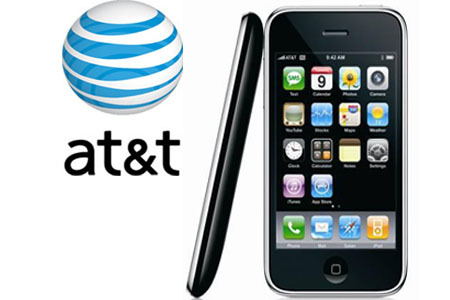Apple v AT& T: Who Ends Up With The Money?
 APPLE versus AT&T – everyone wants the iPhone but at what cost to the carriers?
APPLE versus AT&T – everyone wants the iPhone but at what cost to the carriers?
OK, so this example is from the US but the same things happens in the UK as well. It’s an example of a basic truth about money and business: whoever has the scarce thing gets to make all the money.
That’s because every time a new iPhone model comes out, it’s the carriers—not consumers—that shell out the biggest bucks. Analysts estimate that carriers pay Apple a subsidy of about $400 each time a consumer buys an iPhone with a two-year contract.
AT&T and other wireless carriers say that subsidizing the iPhone heavily amounts to an investment that will make their customers more likely to stay and increase the amount of money they’re willing to spend for the carrier’s services. But some analysts say those benefits have yet to materialize.
At AT&T, Nomura Securities analyst Michael McCormack says, the profit margins on wireless service haven’t meaningfully improved since the company started carrying the iPhone in 2007.
“For the most part, it’s really been a wealth transfer from AT&T shareholders to Apple shareholders,” said Mr. McCormack, who predicts AT&T’s fourth-quarter profit margin will fall to 30% from 44% in the third quarter.
Apple’s the one with the iPhone that everyone wants. There are several different mobile networks that could sell it. Thus it will be Apple that gets the money, not the mobile network, because Apple has the thing that is rare.
This applies to all sorts of other businesses as well. Tesco makes more profit than the farmers do because there’s no shortage of potatoes or milk but there is of well run large supermarket networks. The creatives (the actors, writers, directors) make all the money in the movie business because actual talent at these things is rare while there are plenty of people around you can hire cameras from. Footy players make £100,000 a week because the money in any economic system flows to those who have the thing that is rare: in this case being able to play soccer better than 99.999% of the population.
And yes, this even applies to banksters. If banking talent were common, if there was a flood of people both willing to work 80 hour weeks and capable of doing the work then the shareholders would get the money that flows through The City. But there ain’t which is why those who9 are capable and willing get a goodly cut of that river of cash.
Money simply ends up with whoever it is that has control of the rare or scarce thing.
Posted: 22nd, December 2011 | In: Money Comment | TrackBack | Permalink


